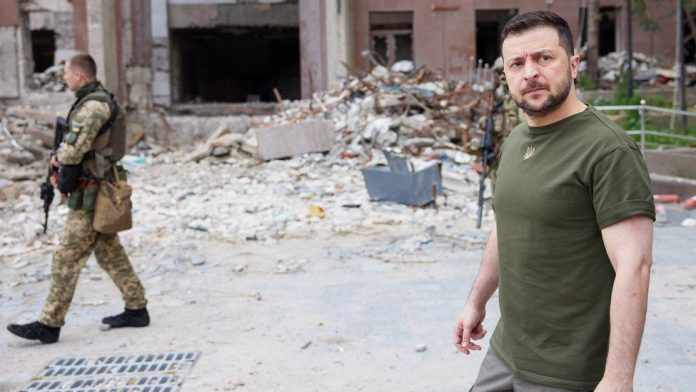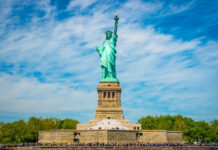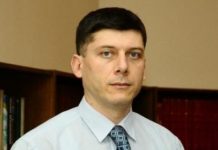President Volodymyr Zelensky has made his first trip to Ukraine’s war-torn southern frontline, as his forces mount a slow-moving advance in the region.
Visiting the hold-out city of Mykolaiv, he inspected damaged buildings and met soldiers, officials and health workers.
The Ukrainian leader also visited the western city of Odesa, which has been subjected to periodic Russian shelling since the war began.
Both cities are targets in Russia’s efforts to seize the Black Sea coast.
Mr Zelensky has regularly met with international leaders in Kyiv since Moscow pulled its forces away from the capital city, having decided to refocus its efforts on capturing the eastern Donbas region.
But he has also defied Russian troops by going to areas where fighting has been raging, and in recent weeks has visited other front-line cities, including Kharkiv in the east.
“It is important that you are alive. As long as you live there is a strong Ukrainian wall that protects our country,” the Ukrainian leader told troops in Odesa.
“I want to thank you from the people of Ukraine, from our state for the great work you are doing, for your impeccable service.”
In Mykolaiv, Mr Zelensky handed out medals to soldiers and urged them to “take care of Ukraine – the only thing we have. And take care of yourself – only you can do it”.
The city has long been a key target for Russian forces and has been subject to heavy rocket and artillery bombardments.
It also lies just 100km (62 miles) north-west of Kherson, a city occupied by Russia since the opening days of the war – but which is now subject to a slow-moving but determined Ukrainian advance.
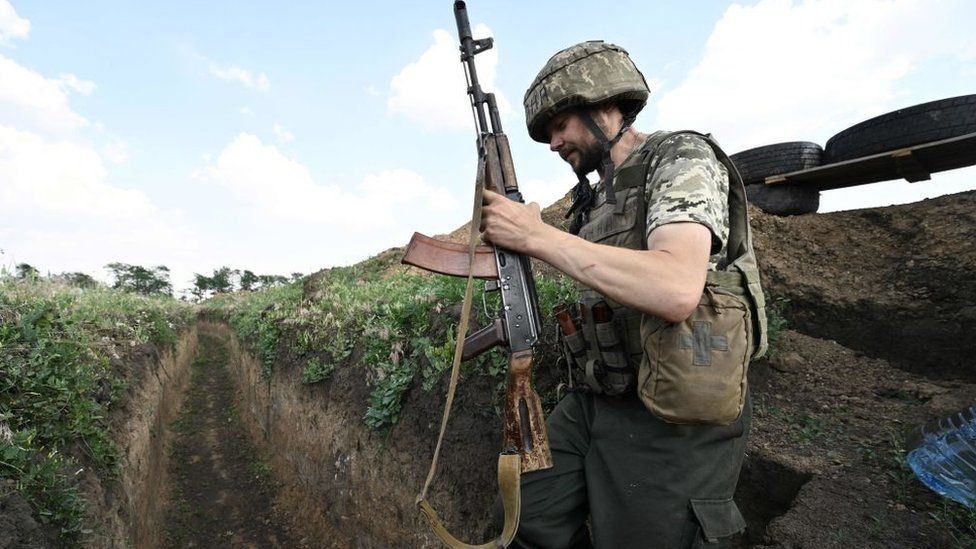 IMAGE SOURCE,GETTY IMAGES
IMAGE SOURCE,GETTY IMAGESEarlier this week, Mykolayiv Governor Vitaliy Kim claimed Russian troops were blowing up bridges near Kherson to slow Kyiv’s counteroffensive on the city.
Local officials say any Ukrainian advance is dependent on long-range weapons promised by the West arriving in time.
Elsewhere, the UK’s Ministry of Defence said on Saturday that Russia was likely to be renewing its efforts to advance into the Donetsk region – which, alongside the Luhansk, makes up the Donbas.
The Ukrainian military said it had “repelled Russian attacks” near Krasnopillya, in Donetsk, and Syrotyne, in Luhansk, with operations continuing around Severodonetsk.
Governor Serhiy Haidai told AFP news agency Russian forces were “just shelling our troop positions 24 hours a day” in the city, now the final Ukrainian holdout in the province.
And pro-Russian officials in the eastern, separatist-held city of Donetsk said five civilians were killed and 12 injured by Ukrainian bombardment.
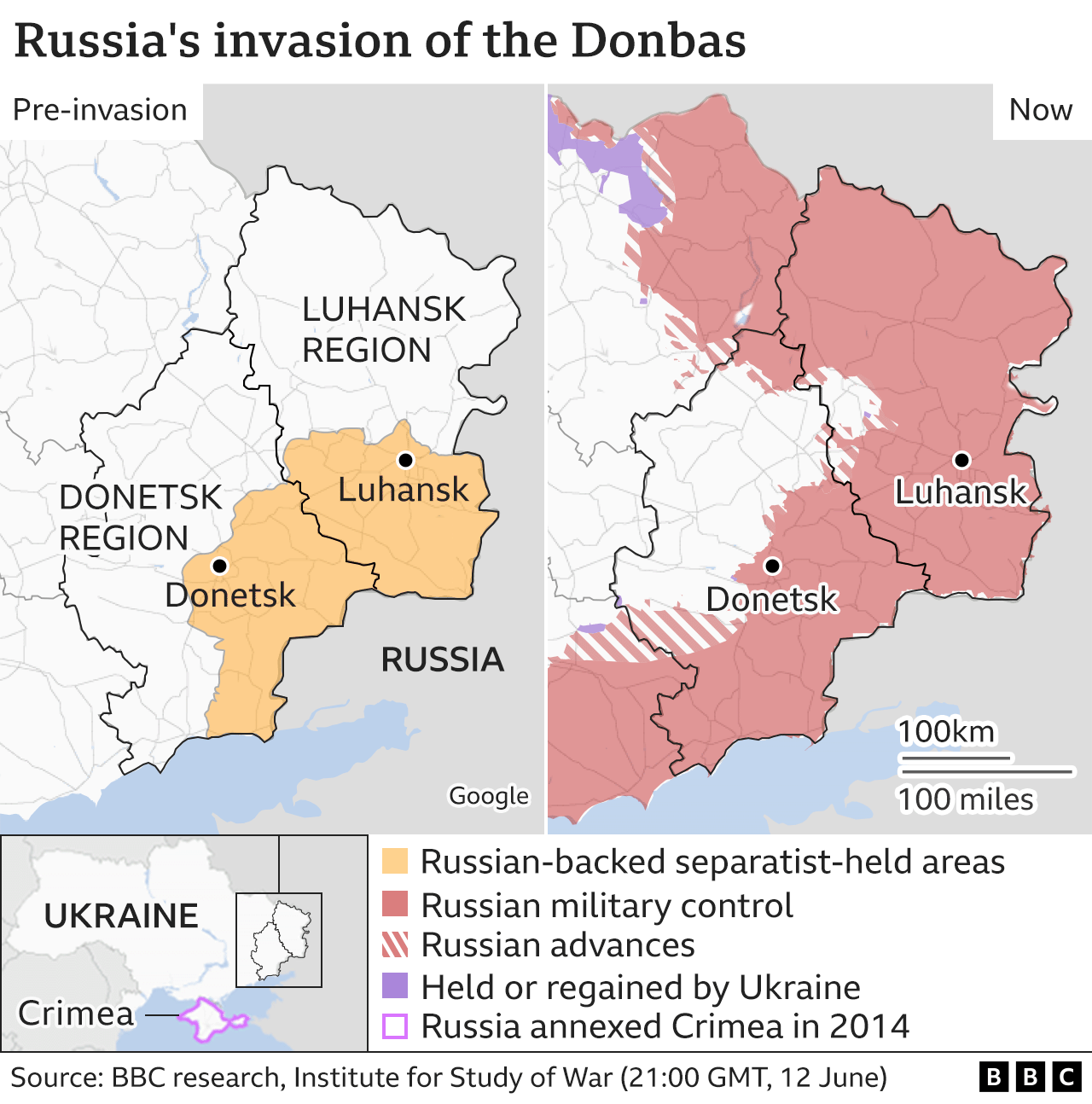
The secretary of Ukraine’s National Security Council has dismissed reports from certain government officials that as many as 500 Ukrainian soldiers could be dying every day.
Oleksiy Danilov said the officials didn’t have access to the relevant information. Previously Ukrainian officials have spoken of up to 100 deaths a day.
In Kyiv, Mayor Vitali Klitschko has told the BBC his country will only enter peace talks after the “last Russian soldier has left Ukraine”.
The former boxer said the Russian people would eventually realise their own soldiers were dying for nothing more than President Vladimir Putin’s ambition.
After returning from his trip to Kyiv on Friday, the UK Prime Minister Boris Johnson warned against “Ukraine fatigue” setting in, saying it was important to show that allies were standing with Ukraine for the long haul in its war against Russia.
He said it would be a “catastrophe” if Mr Putin was able to secure territorial gains already made.
Russia invaded Ukraine on 24 February, saying it aimed to “de-Nazify” and “demilitarise” its former Soviet neighbour.
In the ferocious war which has followed, the UN says that more than 4,500 civilians have been killed and nearly 5,600 have been injured. Thousands of combatants have also been killed or injured on both sides.
More than 13 million people have fled their homes, according to the UN.
The West has responded to the invasion by imposing severe sanctions on Moscow and supplying weapons to Ukraine but has not intervened directly in the war against Russia, a nuclear superpower.

